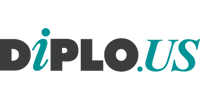For both diplomats and scientists, science diplomacy has become an important topic and practice. It is discussed as an important contribution to solving some of the most pressing global challenges of our time, such as climate change and the global pandemic. At the same time, science diplomacy is a contested concept and practice. It can mean a number of different, sometimes contradictory things, to various actors.
Beyond these divergences, many actors can greatly benefit from the tools and knowledge science diplomacy has to offer. Broadly speaking, it can help diplomats and scientists to reframe their work in useful ways to enable greater collaboration across boundaries. An example of this is ‘boundary spanning’, i.e. bridging the policy and the scientific spheres to facilitate research and increase policy impact.
If we agree that science diplomacy has the potential to be an extremely useful practice and concept, the question of capacity development in science diplomacy comes into an even sharper focus. We now need to ask:
- How can various actors be enabled to benefit from what science diplomacy has to offer?
- What content and what form should capacity development take?
- How do we ensure that capacity development in science diplomacy has a longer-term impact and allows participants to become active shapers of policies and processes in their chosen fields?
For this discussion, we draw on the joint experiences of our speakers from the Geneva Science and Diplomacy Anticipator (GESDA) and the Geneva Science-Policy Interface (GSPI), and the experience of jointly working on and delivering the first Science Diplomacy Week, as well as Diplo’s Science Diplomacy online course.
Join us on Thursday, 14th July, at 13:00 UTC (09:00 EDT | 15:00 CEST | 21:00 CST).
Speakers
Dr Marga Gual Soler is a science diplomacy expert and founder of SciDipGLOBAL, a purpose-driven advisory, consulting, research, and training firm dedicated to building bridges between science, technology, and global policy. She is a senior advisor to the Geneva Science Diplomacy Anticipator (GESDA), founding member of the EU Science Diplomacy Alliance, and visiting professor at the National Autonomous University of Mexico (UNAM).
Mr Nicolas Seidler is the executive director of the Geneva Science-Policy Interface (GSPI). He leads the GSPI’s mission to enhance scientific engagement with global governance actors within the Geneva ecosystem, with the objective to facilitate the emergence of effective, evidence-informed policies and solutions to complex global problems.
Mr Maxime Stauffer is co-founder and chief executive officer of the Simon Institute for Longterm Governance. His work focuses on the governance of low-probability, high-impact risks from emerging technologies and on the representation of future generations in policy processes. Previously, he was a senior science-policy officer at the Geneva Science-Policy Interface and a research fellow at the Global Studies Institute.
Dr Vid Nukala currently works at EMBO. He previously worked at the Office of Global Affairs (U.S. Department of Health & Human Services, US Embassy), the Wellcome Trust/DBT India Alliance, the Institute for Alternative Futures, and the Indo-U.S. Science & Technology Forum. Nukala is interested in biomedical science, technology and innovation, global health, ethics, policy, diplomacy, and community engagement.
Moderator
Dr Katharina E. Höne (Director of Research, Diplo)
About our WebDebates series
Our WebDebates on the future of diplomacy are live-streamed on the first Tuesday of every month. They are organised by Diplo within the framework of the International Forum on Diplomatic Training (IFDT). Learn more about our WebDebates series.


